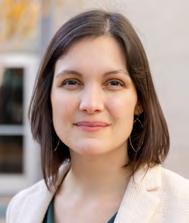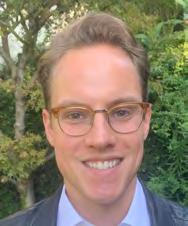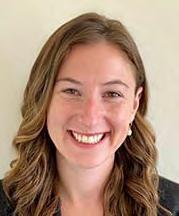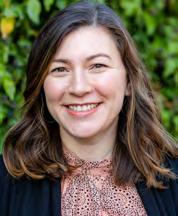

Letter from Directors




The Berkeley Law Clinical Program’s mission of advancing racial, economic, and social justice continues to drive our work. Last year, 225 students enrolled in our 14 clinics, collaborating with faculty, staff, and clients to advance justice in the East Bay, nationally, and globally.
Recently, clinic students helped file a lawsuit concerning radioactive contamination at Hunters Point Naval Shipyard, a site slated for development; advocated for clients facing execution in Alabama, Arizona, Kansas, and California; filed an amicus brief in Mexico’s Supreme Court defending the rights of asylum seekers; successfully petitioned California courts to remove copyright restrictions from official jury instructions; persuaded the city of Berkeley to pursue an affordable housing policy to help residents secure housing and avoid displacement; and supported a successful bill to abolish juvenile fees and fines in Washington, while working on implementing signed legislation in Arizona, Illinois, and Texas.
The Clinical Program organized events to inspire, support, and train students and partners. East Bay Community Law Center Executive Director Zoë Polk led a conversation with civil rights attorney and poet Sunu Chandy about advancing justice through law and art. The Human Rights Clinic co-hosted the first annual conference for U.S. prosecutors on how to prosecute police who use excessive force. Clinic students had the opportunity to hear from Ukrainian clinicians about working in a time of war; speak with a Ninth Circuit judge about the connection between clinic experience and clerkships; and gather for an end-of-year celebration to acknowledge the effort and impact of their collective work.
Our clinical faculty published reports, podcast episodes, and articles to elevate awareness around juror demographics, pretrial incarceration, alternative schools, author protections, and more. In its report, “Guess Who’s Coming to Jury Duty? How the Failure to Collect Juror Demographic Data Contributes to Whitewashing the Jury Box,” the Death Penalty Clinic continued its racial justice research and advocacy by cataloging and analyzing whether, and how, states gather prospective jurors’ self-identified race and ethnicity. The Policy Advocacy Clinic evaluated how counties are implementing a 2021 California Supreme Court ruling that setting unaffordable bail is unconstitutional in ”Largely Unchanged: The Limits of In re Humphrey’s Impact on Pretrial Incarceration in California.” The Samuelson Law, Technology & Public Policy Clinic collaborated on “Writing About Real People,” a guide for nonfiction authors addressing defamation, privacy, and right-of-publicity issues.
Nationally, first-year law students have few opportunities to engage in client-facing work in a clinic setting. The program is excited to expand its offerings with new opportunities that will introduce 1Ls to social justice practice through the teaching and practice expertise of clinical faculty. In spring 2025, Laurel Fletcher will launch the new Global Rights Innovation Lab Clinic and the Policy Advocacy Clinic will begin a new clinical offering — both specifically designed for 1Ls.
We are proud of the work our students, faculty, staff, and partners accomplished this past year and exhilarated by the possibilities that lie ahead. Thank you to all who contributed to our students’ growth, client work, and overall impact.
In community,
Laura, Rosa, Roxanna, and Ty
Sax Prize Celebrates Clinic Students


Gabby Areas ’24 won the 2024 Brian M. Sax Prize for Excellence in Clinical Advocacy for her outstanding work in the East Bay Community Law Center’s Housing Clinic. She worked with the clinic throughout law school, first in the Tenants’ Rights Workshop, then as a clinic student, and finally as an EBCLC student board member. She represented tenants in more than 30 eviction lawsuits and secured over $600,000 for those clients in relocation payments and rent waivers. Areas handled negotiations with opposing counsel, successfully drafted and argued motions in court, and engaged in complex discovery and fact investigations.
“Housing is a human right, and as lawyers we are uniquely positioned to combat systems of oppression; there is no better time to start than as a law student in a clinic.”

Cassidy A. Veidelis ’24 won the Sax Prize Honorable Mention for her three semesters in the Human Rights Clinic, striving to bring a new case in the African regional human rights system to hold social media companies accountable for violating children’s rights in their business models. She interviewed stakeholders mobilizing around this issue in Africa and deepened the clinic’s understanding of how little these companies invest in protecting African children from online harms.
“The clinic was, without a doubt, the best thing I did in law school and I am leaving a more confident advocate and even more on fire about using the law to advance human rights than I was before.”
Death Penalty Clinic
Founded in 2001, the Death Penalty Clinic seeks justice for individuals facing the death penalty by providing them with highquality representation and offers students a rich opportunity for meaningful hands-on experience in high-stakes, complex litigation. Students participate in field investigation, consult with experts, draft pleadings, prepare for hearings, and help shape case strategy. Through direct representation, policy advocacy, and friend-ofthe-court briefs, the clinic also exposes and tackles problems endemic to the administration of the death penalty, such as racial discrimination, prosecutorial misconduct, ineffective assistance of counsel, and unconstitutional methods of execution.

Clinic students dedicated themselves to clients around the country this year. They helped prepare pleadings for the Arizona Supreme Court, trying to preserve a crucial win in the superior court. They developed claims of race-based discrimination under California’s Racial Justice Act. They also drafted portions of a petition to the United States Supreme Court for a prisoner facing imminent execution in Missouri.
Students performed extensive work on behalf of the clinic’s three longstanding Alabama clients. They prepared a petition to the Alabama Supreme Court seeking review of a recurring issue involving ineffective assistance of counsel, researched federal habeas matters, and litigated post-conviction petitions. Moreover, students engaged in nontraditional forms of advocacy, interviewing numerous witnesses to build support for a clemency campaign, including leveraging the use of social media.
The clinic continued its research and advocacy in support of more diverse juries with the publication of “Guess Who’s Coming to Jury Duty?: How the Failure to Collect Juror Demographic Data Contributes to Whitewashing the Jury Box.” The report catalogs the various ways states collect the race and ethnicity data of prospective jurors and makes recommendations for best practices.
Read more news

Guess Who’s Coming to Jury Duty?
Faculty


Elisabeth Semel Co-Director Ty Alper Co-Director

Mridula Raman Deputy Director
Mridula Raman, who joined Berkeley Law in 2019, was promoted to deputy director of the Death Penalty Clinic. A capital defense lawyer who represents primarily deathsentenced prisoners in state post-conviction and federal habeas proceedings, she is a “a tireless advocate for her clients, completely devoted to the education and personal and professional growth of her students, and selfless in the many, many hours she has contributed to the collective enterprise of the Berkeley Law Clinical Program,” say her clinic colleagues. Raman has also represented indigent death-sentenced clients in Texas and Arizona as an assistant federal defender and has an article forthcoming in the Yale Law & Policy Review tentatively called “Prosecuting Abortion.”
Environmental Law Clinic
The Environmental Law Clinic tackles critical environmental justice and health issues while providing students with hands-on experience representing live clients. The clinic’s tools include litigation, agency practice, legislative drafting, and policy analysis. Clinic projects reduce human exposure to pollution, toxic chemicals, and radiation; promote racial and economic equity in environmental policy; and increase access to nature for all. The clinic aims to make students creative, effective, culturally competent lawyers; to make an environmental difference; and to address unmet legal needs.






This academic year began triumphantly with clinic students’ 34page Communication to the U.N. Special Rapporteur on Toxics, which documented PFAS chemical pollution and its human health toll in North Carolina. The Special Rapporteur’s engagement with the issues generated enough media and political pressure that the U.S. Environmental Protection Agency withdrew approval for the planned U.S. reprocessing and disposal of 4 million pounds of PFAS waste from Europe, forcing the European Union to solve its own toxics disposal problem.
The clinic also settled litigation against the Bay Area Air Quality Management District that will accelerate pollution controls for the 40 most-polluting facilities across its nine-county region. The settlement specifies measures to make the agency more responsive to the community. The agency has also pledged to create an environmental justice fellowship to provide a career on-ramp to equity work for recent law graduates interested in government service.
In June, the clinic filed suit against the U.S. Navy for failing to remediate adequately the extensive radiological contamination at the Hunters Point Naval Shipyard in San Francisco, the city’s only Superfund site. The radiation, from disassembling and sandblasting ships that carried nuclear materials to the Pacific during World War II, is a dirty secret that stands as an impediment to the city’s shoreline redevelopment plans. Clinic client Greenaction for Health and Environmental Justice has taken to the courts to force a responsible cleanup before the site is repurposed.
Human Rights Clinic
The Human Rights Clinic advances human rights at home and abroad through litigation, documentation, evidencebased policy work, and client-centered advocacy on a range of cases and urgent issues. One of the oldest human rights clinics in the country, the clinic has pioneered a multidisciplinary, collaborative approach to its work. Students hold perpetrators of mass violence accountable in international and domestic courts, fight for justice for migrants at the border and immigrants in our community, and protect human rights defenders under threat from authoritarian regimes.




Roxanna Altholz Co-Director Laurel E. Fletcher Co-Director



Tayyiba Bajwa Supervising Attorney
Helen Kerwin Supervising Attorney
Helen Kerwin joined the Human Rights Clinic as a supervising attorney, bringing extensive experience in international human rights litigation and advocacy in the United States and Latin America. She previously worked with the Center for Justice and International Law, representing Indigenous communities, migrants and refugees, and human rights defenders in strategic litigation before the Inter-American Human Rights System.
In partnership with Alliance San Diego and the Southern Border Communities Coalition, the clinic helped bring international attention to the United States’ failure to ensure that U.S. law on use of force adheres to international standards. Students helped draft a shadow report that describes how the U.S. use-of-force standard shields law enforcement from accountability for serious human rights violations, including the 2010 killing of Anastasio Hernandez Rojas. Students accompanied a delegation of over a dozen victims of excessive force to Geneva for the United Nations Human Rights Committee’s review of the United States.
The clinic submitted an amicus brief to the Supreme Court of Mexico on behalf of several U.N. experts on migration and human rights. Presented in a case regarding the detention and turning back of asylum-seekers at airports, the brief highlights binding international law and promising precedent from Latin America that requires states to receive asylum-seekers at airports and treat them with dignity.
Co-Director Laurel Fletcher spent the academic year on sabbatical to research global North-South hierarchies in the human rights movement for her book project.
Read more news

“I learned what it means to provide zealous, caring, and creative representation, and that being in community with a group of generous, supportive, kind, and very funny people can make even the heaviest tasks a bit lighter.”
— Grace Erger ’24, Death Penalty Clinic student
Policy Advocacy Clinic
The Policy Advocacy Clinic is the nation’s premier interdisciplinary clinic where law and public policy students team up to take on systemic racial and economic injustice. The clinic’s approach is ground-up (rooted in the lives of impacted people), problem-based (addressing pressing social issues), and community-driven (accountable to local organizations). Students support state and national reform campaigns in the juvenile and criminal legal systems while exploring the potential and limits of law and public policy to solve real-world problems.










The clinic continued to shed light on systemic harm in the criminal and juvenile legal systems and to support successful reform efforts at the local, state, and national level. Locally, the clinic assisted the Urban Peace Movement on a project addressing prosecutor accountability and violence prevention in Oakland and conducted research on community-based reentry funding in Alameda County for the Justice Reinvestment Coalition.
In California, the clinic co-authored “Largely Unchanged: The Limits of In re Humphrey’s Impact on Pretrial Incarceration in California” with the UCLA Law Pretrial Justice Clinic, detailing how counties continue to make little progress implementing a historic California Supreme Court decision that setting bail at an amount that a person cannot afford to pay is unconstitutional. The clinic also represented Debt Free Justice California, supporting multiple reform campaigns in the adult and juvenile settings and conducted a training on legislative drafting for Communities United for Restorative Youth Justice Dream Beyond Bars fellows.
Nationally, as part of the Debt Free Justice campaign, staff and students supported a successful bill to abolish juvenile fees and fines in Washington, a resolution requiring data collection on juvenile fees and fines in Hawai’i, and the implementation of juvenile fee repeal bills in Arizona, Illinois, and Texas.
Read more news

Samuelson Law, Technology & Public Policy Clinic
The Samuelson Law, Technology & Public Policy Clinic trains the next generation of lawyers to advance the public interest in a digital age marked by rapid technological change. The clinic’s work focuses on three main areas: protecting civil liberties, promoting balanced intellectual property laws and access to information policies, and ensuring a fair criminal justice system. The clinic does this through strategic litigation opportunities, regulatory and legislative processes, and policy analysis.

“It was really valuable to do something outside of the four walls of the classroom. We were able to take the lead and make it how we wanted it to be. It was surprising how much new technological information we had to learn, but I found that to be really valuable in the end. And now I have more confidence. If I face something in practice that I don’t know about, it’s okay, I can figure it out.”
— Noor Alanizi ’25, Samuelson Clinic student



Catherine Crump Director Erik Stallman Associate Director Jennifer M. Urban Director of Policy Initiatives

Juliana DeVries Staff Attorney
The clinic filed an amicus brief in Hachette v. Internet Archive on behalf of the Center for Democracy & Technology, the Library Freedom Project, and Public Knowledge, explaining the importance of reader privacy in digital library lending. The brief explains that preserving libraries’ ability to digitize and then digitally lend books, articles, and other material they already own — known as controlled digital lending — protects patrons from the risks of data tracking, security breaches, and surveillance.
On behalf of American Civil Liberties Union California Action, the clinic recommended additional guidelines in a comment response to California Gov. Gavin Newsom’s executive order on generative artificial intelligence, which produces text, images, and videos using generative models. The comment makes a number of recommendations, including prohibiting technologies that pose an unacceptable risk to vulnerable communities, such as facial recognition and predictive policing, and applying the guidelines to any automated systems impacting Californians, not just generative artificial intelligence.
Juliana DeVries ’17 returned to the Samuelson Law, Technology & Public Policy Clinic, this time as a staff attorney, after first joining as a clinic student and then as a teaching fellow. She also practices appellate and criminal defense law as a solo practitioner and will support the clinic’s criminal justice docket. Read more news
East Bay Community Law Center
The East Bay Community Law Center houses Berkeley Law’s eight community-based clinics, which serve thousands of clients annually in the surrounding community. For more than three decades, Berkeley Law students have advanced vital legal support and policy advocacy at EBCLC — Alameda County’s largest provider of free, holistic legal services. The center teaches critical, practical, and hands-on lawyering skills, while fighting for racial justice and reflecting on the lawyer’s role and the lawyering process.



Executive Director Rosa Bay Co-Deputy Director


Jay Kim Co-Deputy Director Rebecca Oyama Clinical Program Director

Recent News
The East Bay Community Law Center trains over 100 law students each year through its community-based clinical program. As a women of color–led organization, EBCLC affirms that uplifting Black and brown women, who serve as the organization’s primary clientele, will lead to more thriving, healthy, and dignified communities. EBCLC will continue to center women of color and the resilient communities that they sustain.
• The Community Economic Justice Clinic, following a multiyear advocacy effort with partner organizations, successfully persuaded the city of Berkeley to adopt a proposed Affordable Housing Preference Policy. This policy is crucial in advancing racial equity, helping many residents secure affordable housing and avoid further displacement.
• The Health and Welfare Clinic secured $1.2 million in public benefits for clients and their families, averaging $19,000 per client.
• Working together, the Youth Defender and Education Justice clinics provided holistic support to 110 young people and their families. On the policy front, the Education Justice Clinic was a critical champion behind the passage of SB274. This bill bans K-12 school suspensions for “disruption and defiance,” which have had a discriminatory impact on Black and brown students.
• The Immigration Clinic continued supporting clients in navigating the often daunting, inhumane, and complex field of immigration law, while creating pathways for increased civic engagement. The clinic filed 29 green card and naturalization (citizenship) applications and 383 Deferred Action for Childhood Arrivals (DACA) applications over the past year.
• The Clean Slate Clinic engaged in innovative work with unhoused pregnant people and their supporters to push back against biased hospital systems by completing voluntary guardianship transfers in order to prevent and disrupt the traumatic removal of children by Child Protective Services.
• The Consumer Justice Clinic successfully discharged nearly half a million dollars of debt for their clients, averaging $17,000 per client.
• The Housing Clinic won a month-long jury trial for a lifelong Berkeley resident who was facing an unjust eviction. Not only was the client able to stay in their family home, but through this victory, EBCLC received the largest attorney’s fees award ever ordered in an eviction case in the organization’s history.
Clean Slate Clinic
The Clean Slate Clinic provides legal services at the intersection of criminal, employment, and consumer law, representing clients on post-conviction record-sealing petitions in criminal court and engaging in local and statewide criminal justice reform, particularly as it relates to court debt and the criminalization of homelessness. Law students file petitions in criminal court, conduct intake at weekly courthouse clinics, write declarations and briefs, and represent clients in administrative hearings and municipal court.
Community Economic Justice Clinic
The Community Economic Justice Clinic uses corporate law to provide technical assistance to organizers in building community resources such as land trusts, cooperatives, and credit unions. Students engage in “movement lawyering” strategies, including community legal workshops, client counseling, and direct representation to advance peopleoriented economic development and empower low-income communities of color to build long-term solutions to poverty.
Consumer Justice Clinic
The Consumer Justice Clinic provides assistance and representation to low-income Alameda County residents on a variety of consumer issues, including debt-collection defense, student loans, car fraud, predatory lending, and consumer scams. Students engage in a full range of litigation practice, including drafting motions, representing clients in court, and negotiating settlements. Students also support the clinic’s pursuit of state policy initiatives that address the most significant challenges faced by low-income consumers.
Education Justice Clinic & Youth Defender Clinic
The Education Justice Clinic and the Youth Defender Clinic work together to fight back against the criminalization of youth of color, so that they can thrive in their communities and get the education they deserve. The clinics collaborate to provide holistic representation to youth in the juvenile legal system. Law students represent clients in juvenile court, special education (IEP) proceedings, and at expulsion hearings. Students also participate in policy advocacy to disrupt the school-to-prison pipeline and youth carceral system.
















Health and Welfare Clinic
The Health and Welfare Clinic provides critical legal services to individuals at risk of poor health outcomes due to poverty, unsafe housing conditions, homelessness, and/or inadequate health coverage. Through medical-legal partnerships with local providers, law students work to provide stability for their clients. Students represent clients at administrative hearings involving the denial of disability-related benefits and provide limited-scope representation regarding public benefits issues.
Housing Clinic
The Housing Clinic is a high-volume litigation practice designed to protect and promote safe, healthy, and affordable housing for low-income tenants through eviction defense and affirmative litigation to compel landlords to maintain their rental properties in a habitable condition. Students engage in a full range of litigation procedures while representing tenants in civil eviction proceedings and in administrative matters under local rent control ordinances.









Immigration Law Clinic
The Immigration Law Clinic provides legal services to low-income individuals focusing on the most vulnerable populations — people with disabilities and chronic illness, members of the LGBTQ+ community, and youth. The clinic has formal school-based partnerships providing legal services to immigrant students in the Oakland Unified School District, community colleges, and UC Berkeley. The clinic prioritizes complex cases including those involving criminal issues. Students carry their own client caseload and experience the full range of client representation through assessing legal relief in initial consultations and providing direct legal representation in immigration court and before other government tribunals.








Connect with us

clinicalprogram@law.berkeley.edu

law.berkeley.edu/experiential/clinics/
Follow us on Instagram @BerkeleyLawClinics
